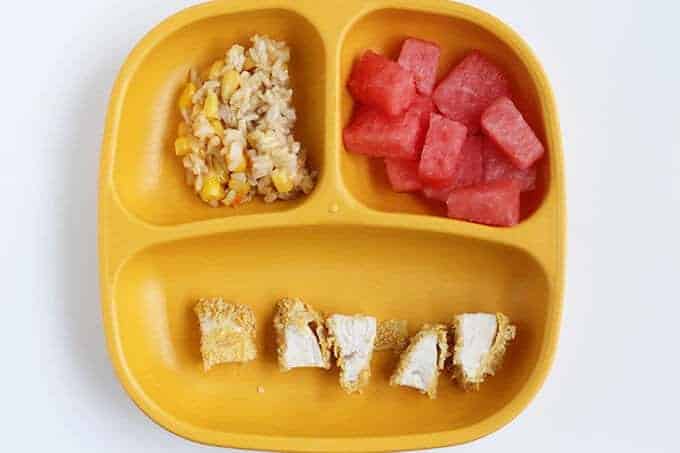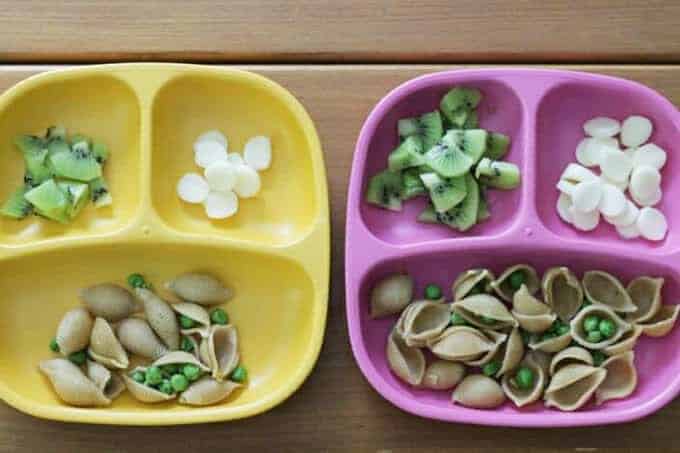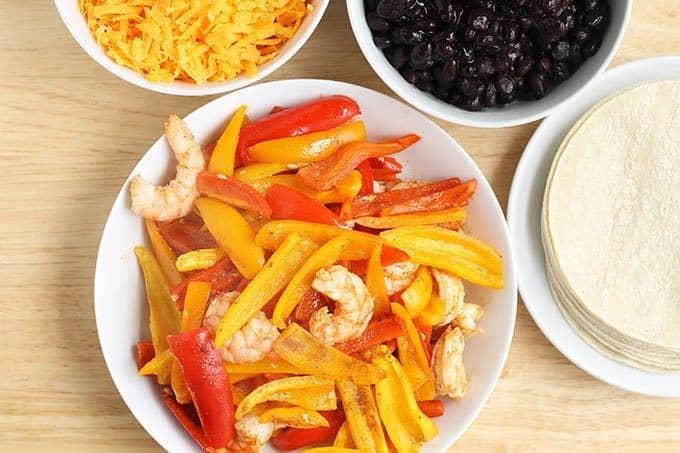Toddler Appetites
There was a weekend when my oldest was two that we spent some time with my two best friends and their toddlers. It was a really fun weekend away and I love that our daughters had the chance to get to play together. One thing that I couldn’t help but notice was how different the girls appetites were, especially the two that are closer in age. Both are healthy, both are energetic, yet their eating styles were pretty different. Among the three girls, mine had the biggest appetite and to be completely honest, it made me a little nervous and self conscious. Was she eating too much? And: Had I done something wrong? A few days later we were back home and out to dinner with my husband. The waitress commented more than once about how L was a “good eater” because of how enthusiastically she was eating her edamame and shrimp. The girl loves Japanese food! The next day, after a morning at a waterpark, L didn’t eat anything for dinner. She was suddenly really, really sick and hardly ate a thing for the next four days. I’m talking ½ a slice of bread and five Cheerios for an entire day. Did that make her a “bad” eater?
What’s normal for a toddler’s appetite?
In just under a week, I went from having the kid with the biggest appetite to a kid who was hardly eating. I was offering all of her favorite foods and still, no dice. And sure, sickness was at play, but the huge swing really made me think about my own relationship with my daughter’s appetite. Why was I so preoccupied by it? To help my thought process, I consulted feeding expert Ellyn Slatter. Look at what I found (emphasis is mine): I was considered “chubby” as a kid and it definitely influenced how food was handled in my house. It look me a long (loooong) time to overcome the feelings of shame and guilt I learned from a young age to associate with food and I don’t want that cycle to start in my daughter—or in anyone else’s kids.
Feeding Your Toddler: Here’s What to Know
Toddler appetites vary.
Their intake can be so varied and variable that it’s pretty hard to accurately define when a little one is eating enough—or too much. It’s simply impossible to objectively decide what’s the right amount.
Kids instinctively know how much to eat.
This is true for little kids under the age of 3 (about), even when they are sick. (We adults do too, but I think that it’s all wrapped up in emotions and our personal histories with food so it’s harder for us to tell…) They might need to be reminded that there’s a drink nearby, or that it’s snack time, but when my girl was dealing with a high spiking fever, she drank way more liquids than she normally does. Her body was using its resources to fight off the virus and needed the liquids more than solid foods.
How we view what our kid’s eat is tied to how we view what WE eat.
Whether or not we view how much they are eating as too little, too much, or just enough is likely wrapped up in how we ourselves feel about food on any given day. Are we comfortable with our own intake? Are we able to listen to our hunger and satiety cues? Do we feel comfortable in our bodies? Do we trust ourselves?
It’s our job to help them trust their own hunger.
If we push them to eat more (or less) than they naturally want to, they won’t know how to trust their own hunger cues and signals. I know that when my food was restricted as a kid, I rebelled by hiding food, eating in secret, and lying about what I was eating. No one wants that! Instead, using the framework of the Division of Responsibility can set the whole family up for happier mealtimes.
We can set them up for success.
By surrounding our kids with healthful food most of the time, and letting them decide what and how much to eat, we give them the chance to learn the skills of self regulation. These are the same skills that we adults often have to dig deep to find if we weren’t given the opportunity to practice them when we were kids.
The Problem with “Good” vs “Bad” Foods
The more we talk about food negatively—whether calling something “bad”, talking about how something we eat will make us fat, or how we aren’t eating one thing or another for whatever reason/detox/diet we happen to be on—the more our kids will grow up learning that food makes us feel badly about ourselves. Or that it makes us question our value as a person. And that it can totally define our moods during the course of a day. TIP: Read more about “good” vs “bad” foods here.
How to Trust Your Toddler’s Appetite
Here are a few ways to trust that your toddler is eating enough, assuming there are no serious health conditions.
Serve food family-style. Then let the kids decide what from the foods you’ve served they want to eat and how much. Keep any commentary to yourself, though feel free to talk about what’s on the table in a neutral way. Don’t force them to eat if they aren’t hungry. This can happen on any random day, so if your toddler isn’t hungry, let it be okay that they aren’t as hungry as you expect. They are the only ones in their bodies who can actually know how their belly feels. Consider if “pickiness” is actually a kid clearly showing you that they aren’t hungry. One of the most liberating perspectives to take is to assume that if your child won’t eat the food you’ve made, then they aren’t hungry—NOT that they are picky. This is such a help in learning to trust their hunger. Set a clear routine. Mealtimes, snack times, and food-free times in between can help kids regulate their hunger and eat at appropriate times. If your child wants to snack all day, try working on a set feeding schedule and doing other things when mealtime is done. Set boundaries. The best way to avoid becoming a short-order cook or becoming confused about your child’s hunger is to make a meal, let them eat it (or not!) and call it good until the next meal. The more we get up and get our kids other things to eat, the more confusing it is for everyone to know how hungry they are and what they truly like—and it’s seriously too much work! Expect intake to go down during sickness. The most important thing when a kiddo is sick is fluids and many often don’t eat much at all. Lower your expectations! Expect intake to fluctuate from meal to meal or week to week. Some kids eat a big breakfast and taper down, eating hardly anything for dinner. Others may not ever be hungry for breakfast but are ravenous by 10 am. It’s okay if your child has their own hunger pattern—and it’s okay if that varies.
How to Raise a Healthy Eater
To me, raising a healthy eater—and not necessarily a kid who eats three bites of broccoli today—is my big picture goal. And in order to make that happen, it can really help to take a step back and realize that we might be making things worse with our own expectations. Try to relax and avoid mealtime pressure and let your child show you how much they need to eat. It can really make meals so much happier! Because: If we don’t trust our toddlers to eat the right amount for their bodies, they never will. This post is not meant to be a substitute for medical advice. Please consult your pediatrician or a feeding therapist as needed.
Read more about normal picky eating here and comment below with any concerns or questions.


